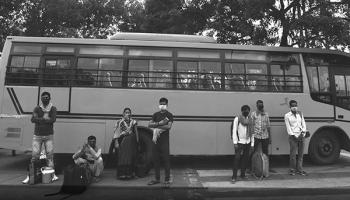According to CIVICUS, only 3.4% of the world's population lives in countries with open civic space. Read this article by IISD on how the pandemic has affected the distribution, use and oversight of power determining people's well being.
"Across different regions, the pandemic has affected the distribution, use and oversight of power determining people’s well-being. As COVID-19 serves as an excuse to centralize and consolidate power, diminished trust in governance systems and weakening social contracts are spreading.
"...In May and June, as countries faced various levels of the pandemic outbreak, we asked a handful of experts in each region to explain how COVID-19 has affected progress towards Sustainable Development Goal 16 (measuring peace, justice, and inclusion). Specifically, we wanted to know how the relationship between people and their governments has changed because of the crisis.
We heard similar narratives across all regions. COVID-19 is revealing extreme inequalities and the dangerous impact of the pandemic on the distribution of power.
...We are at a critical juncture now where we must look beyond the short-term and move away from a solely health-oriented response to the pandemic. SDG 16 provides a manual for this course correction. We must refocus on how to correct some of the more long-term, insidious governance trends that are emerging, before it is too late. Experience tells us that, over time, large power imbalances trigger instability and conflict. If we do not urgently correct these disparities, we stand to lose much of the progress made towards sustainable development."
Read the full article here.


